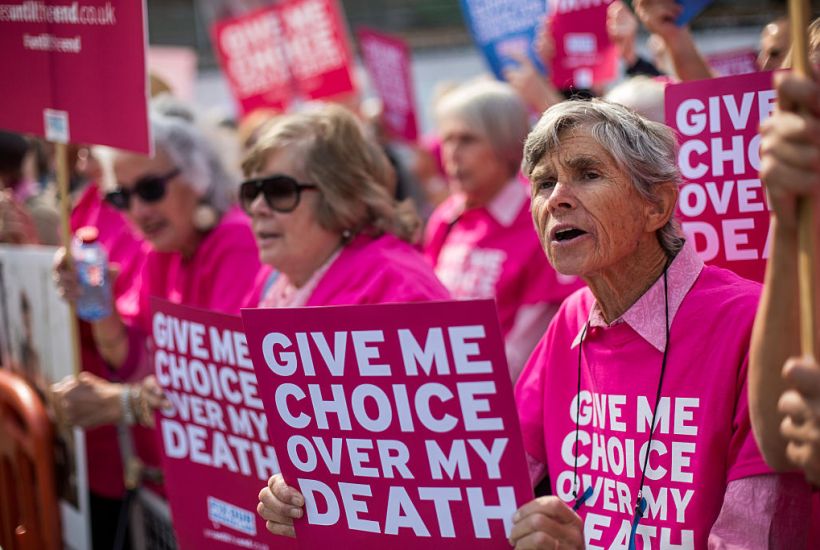Assisted dying looks closer than ever to becoming law in the United Kingdom. Both the House of Lords and the Scottish parliament have recently discussed proposals for it and polling suggests eight out of ten people in Britain favour a change to the law.
It is hard not to agree that people should have the option to end their lives. But assisted dying should not be treated as a glorified painkiller. Though campaigners are undoubtedly sincere in their desire to alleviate distress, the history of the assisted dying campaign suggests that often there are those with a more worrying goal: the use of assisted dying to create a more ‘efficient’ society.
Campaigners claim assisted dying should be reserved solely for the terminally ill and mentally competent. But those countries in which it has already been legalised have seen its availability expanded, with worrying implications for how we treat the sick, disabled and elderly.
Canada legalised medically assisted death five years ago, but new legislation has already repealed safeguards requiring a person’s natural death be ‘reasonably foreseeable’. Disabled people could now be euthanised. Belgium legalised euthanasia in 2002. It is now available for terminally ill children. The Netherlands also legalised assisted dying in 2002. Two decades on, it is already now accessible to those suffering from blindness, tinnitus, autism, dementia and mental illness. Extending access to healthy over-75s has already been proposed. Ever-widening obtainability is an inevitable consequence of treating euthanasia as only another way of reducing pain.
The leading campaign group for legalising assisted dying in the UK are Dignity in Dying. They first emerged as the Voluntary Euthanasia Society in 1936. The voluntary part was a concession designed to help assisted dying legislation through parliament, but economic concerns featured predominantly when it was debated in the 1930s. The founding member of the Voluntary Euthanasia Society, the Labour peer Lord Arthur Ponsonby, put forward the Voluntary Euthanasia Bill in 1936, arguing against the ‘mistaken notion’ that the Bill was about sparing people pain, insisting that it was really about ‘being a burden’, intended for those who ‘are no longer of any use’. His rhetoric reflected a society where the brutal utilitarianism of eugenics had not yet been discredited by the Nazis’ horrors.
The group’s decision to change their name to ‘Dignity in Dying’ in 2005 reflected shifting attitudes to death and suffering. The modern language of a ‘right to die’ reflects worries about the consequences of an aging society. Advances in medical science have ensured people are living longer than ever. But as lifespans have grown, so have fears of spending our last years with an ever-diminishing quality of life.
Pressures produced by an aging population have worked in step with a liberalisation public attitudes. Six decades on from the 1961 Suicide Act, which decriminalised suicide, opinion is overwhelmingly behind a further update to the law. The Sunday Times has begun campaigning on the issue, joining the more than 25,000 registered supporters of Dignity in Dying. Already, Do Not Resuscitate orders are being placed on care home residents without their families’ consent. With an average of one Briton a week travelling to Switzerland to die pre-pandemic, assisted dying is already becoming normalised. Changing the law would only reflect this increasingly grim reality.
Assisted dying campaigners are often not to be trusted. The underlying logic has pushed for assisted dying to be continually extended beyond the terminally ill to anyone suffering from a debilitating condition. If assisted dying is legalised, we will find ourselves in a society where the elderly, sick or disabled are increasingly treated as burdens for simply wanting to continue to live. Politicians should hesitate before their sympathetic intensions push society even closer towards this nightmare.
Got something to add? Join the discussion and comment below.
Get 10 issues for just $10
Subscribe to The Spectator Australia today for the next 10 magazine issues, plus full online access, for just $10.



















Comments
Don't miss out
Join the conversation with other Spectator Australia readers. Subscribe to leave a comment.
SUBSCRIBEAlready a subscriber? Log in